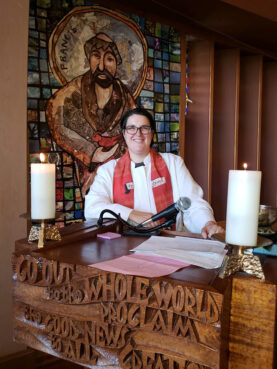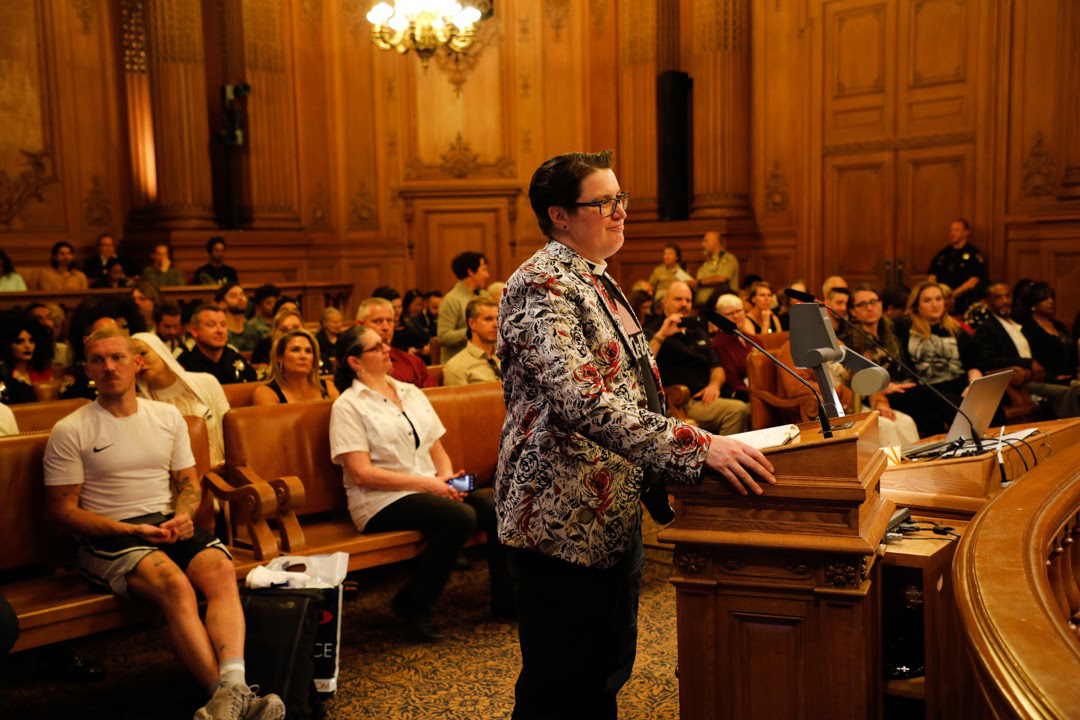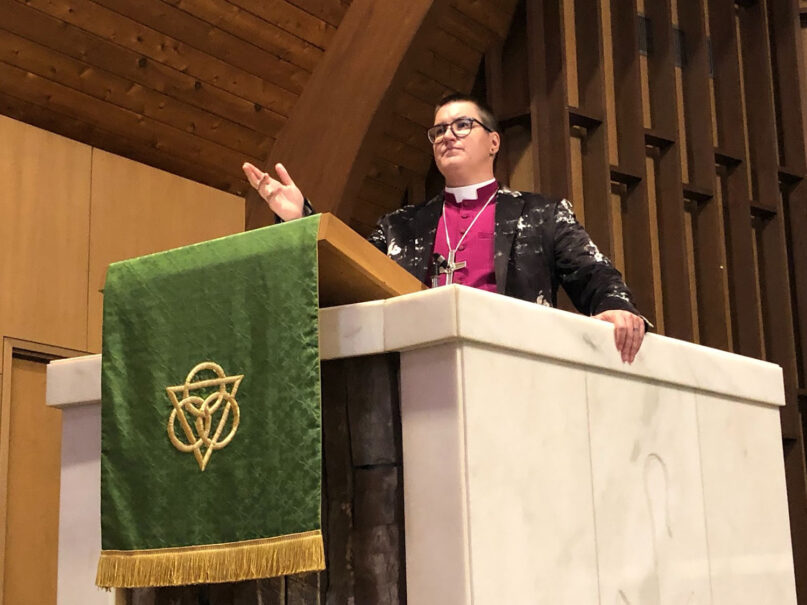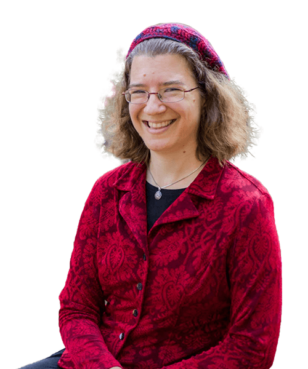(RNS) — July is Disability Pride Month and marks the passing of the Americans with Disabilities Act on July 26, 1990, a watershed moment for civil rights law. However, mosques, synagogues, churches and other religious institutions remain exempt from ADA requirements.
The Americans with Disabilities Act prohibits discrimination based on ability in areas such as public accommodations, employment and transportation and is the farthest-reaching civil rights law for people with disabilities in the U.S. Its impact can’t be overstated, yet it’s no magic antidote for inaccessibility — for example, many ADA standards only apply to new buildings or alterations.
In addition, the legislation broadly exempts religious entities. Religious groups cited prohibitive costs and religious freedom concerns to win the exemption in 1990. Because of these exemptions, religious communities are not required by law to have accessible spaces and are also exempt from some of the ADA’s employment standards.
Rabbi Julia Watts Belser, longtime disability justice advocate and an associate professor of Jewish Studies at Georgetown, said most Americans don’t realize the ADA has religious exemptions. “Many people of faith are shocked and saddened when they learn about the exemption, because it runs counter to their own sense of religious values and ethics,” she said.
Watts Belser said that, as a wheelchair user, she has been to many churches or synagogues where she couldn’t use the bathroom. In some synagogues, she’s been able to access the sanctuary but not the bimah, the platform from which the Torah is read. “As a Rabbi who is a wheelchair user, this is a very stark reminder of the ways so many spaces weren’t built for me,” she said.
Madeline Jarrett, who has a chronic condition that impacts her mobility, has had similar experiences. “Although I have been an active Catholic for my entire life, I have never been an altar server nor a regular reader nor a Eucharistic minister,” said Jarrett. “The primary reason for this is the lack of railings on and/or ramps near altar steps.”
“Disability Pride — and Catholicism, in its most authentic form — rejects the hierarchy that claims certain bodies are ‘better’ or more valuable than other bodies,” said Jarrett, who has her master of divinity from Boston College and starts her Ph.D. in systematic theology there in the fall.
Though Disability Pride is not nationally recognized (it was a designation made by New York Mayor Bill de Blasio in 2015) in recent years it has taken on a life of its own; Disability Pride parades are held across the U.S., and currently, TikToks with the hashtag #DisabilityPride have been viewed more than 270 million times on the app.
For Bishop Megan Rohrer of Sierra Pacific Synod in the Evangelical Lutheran Church in America, Disability Pride is something to celebrate year-round. “I identify as a disabled person because I’m neurologically diverse,” said Rohrer. “I like to think I celebrate all the time. I think the fact my brain sees the world differently is part of why I was elected bishop, because where some people see a difficult problem, I sometimes see paths to navigate and ways of working together.”
RELATED: She lost her husband in a beach accident. Her book tackles what it takes to heal.
Rohrer agreed that the accessibility of a house of worship sends a message about who belongs there. “We put banners on the outside of our buildings that say all are welcome, but the architecture of our buildings limits the welcome we are able to extend,” said Rohrer.

Bishop Megan Rohrer presiding at Worship at Grace Lutheran Church in San Francisco, California. Bishop Megan served with Grace Lutheran prior to beginning their role as Bishop. Photo by Laurel Rohrer courtesy of Sierra Pacific Synod
While the ADA’s religious exemptions mean places of worship aren’t legally required to be ADA accessible, that hasn’t stopped people with disabilities and allies from breaking down ableist barriers.
Roher said that, at the last church they served at, Grace Lutheran in San Francisco, the council decided that whenever something required repair — a toilet, for example — they would replace it according to ADA standards rather than repairing items not up to code.
Rohrer also recommended other ways to improve accessibility, such as upgrading lights and sound systems to avoid buzzing, which helps those with sensory overload. Watts Belser suggested providing captions, sign language interpreters and large print and Braille Bibles or prayer books.
Ben Bond, a master of divinity candidate at Yale Divinity School, noted that opting-in to accessibility is ultimately to everyone’s advantage. “All ability is temporary,” said Bond, “so we all have a stake in disability liberation.”
RELATED: Will those suffering late-stage dementia be the next to be called less than human?
Because of a physical disability, Bond has difficulty using stairs, and when he arrived on Yale Divinity’s campus in fall 2019, he found YDS housing couldn’t accommodate him.
“In the same way that churches are exempt from making ADA compliant structures, the same thing happened with YDS housing — none of it has elevators,” said Bond. He soon met Daryl Denelle, a fellow master of divinity student who also found student housing inaccessible. Together, the two founded Divine Abilities, a student group created for fellowship and support for people with disabilities.
Bond said he and two other group members were hired to create disability-centered worship services at the divinity school’s chapel. In this role, the group has not only addressed physical barriers to accessibility, but also the ways ableist barriers show up in liturgy and language.
“Just think of ‘Amazing Grace’ — ‘I once was blind, but now I see,’” said Bond, pointing out the ableist language in the classic Christian hymn.

Bishop Megan Rohrer speaking at San Francisco City Hall as part of their advocacy work. Courtesy of Sierra Pacific Synod
Rohrer said churches often use metaphors about the “lame walking” or “mute speaking” to describe faith, but “scriptural texts that think about disability as demonic have been really harmful to a lot of people.”
For Jarrett, Disability Pride is a time to reject harmful notions of disability and instead embrace a fundamental Christian teaching: “That our bodies, and many elements of our physical world, are our gateways to accessing the Divine.”






